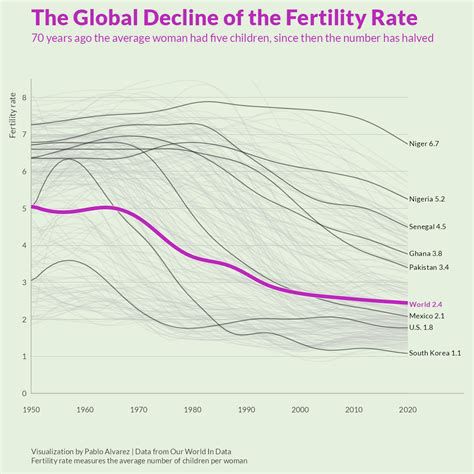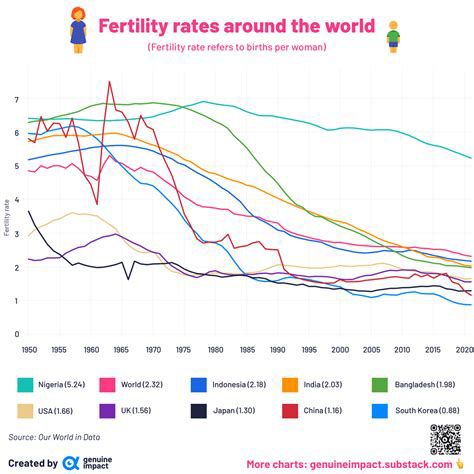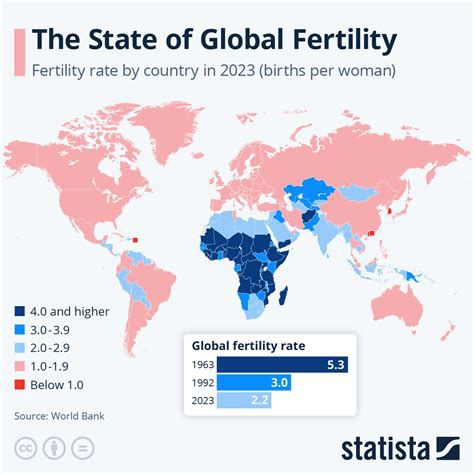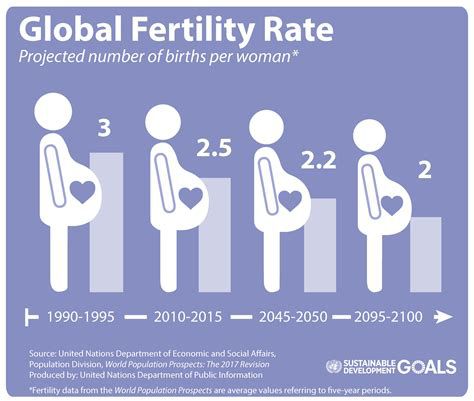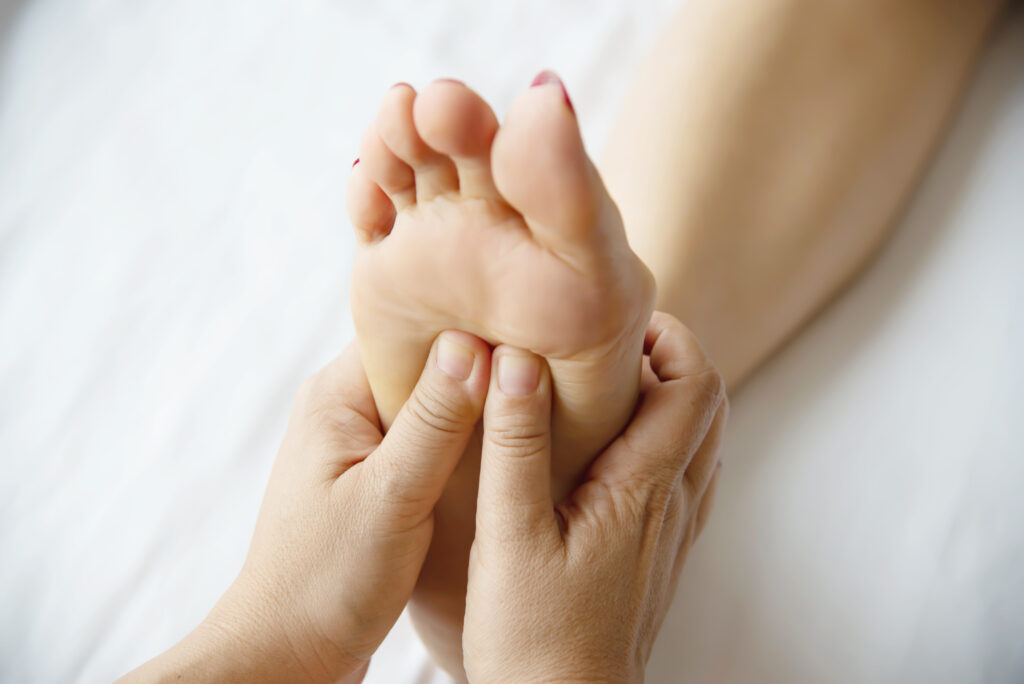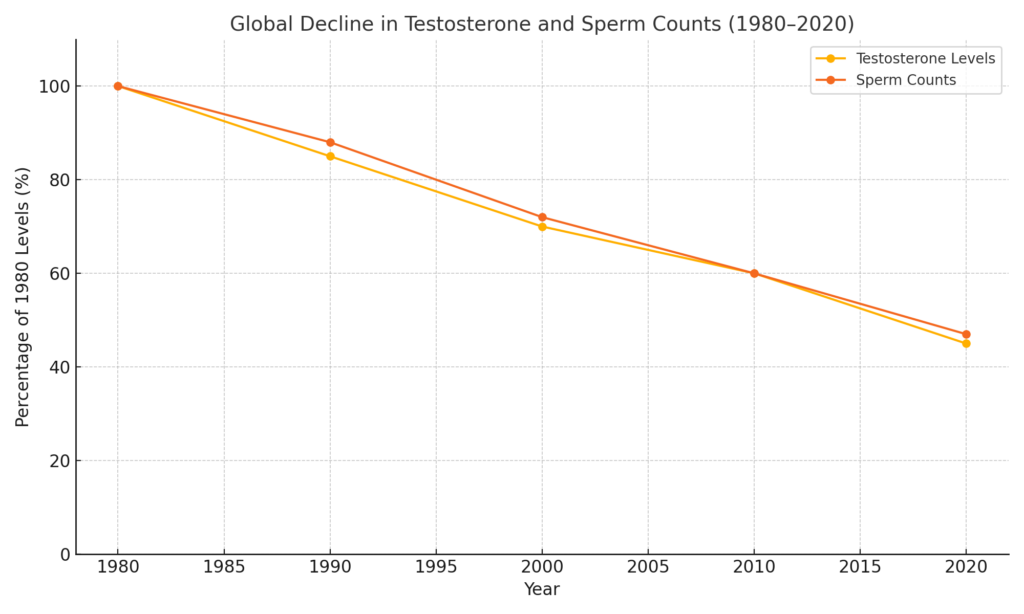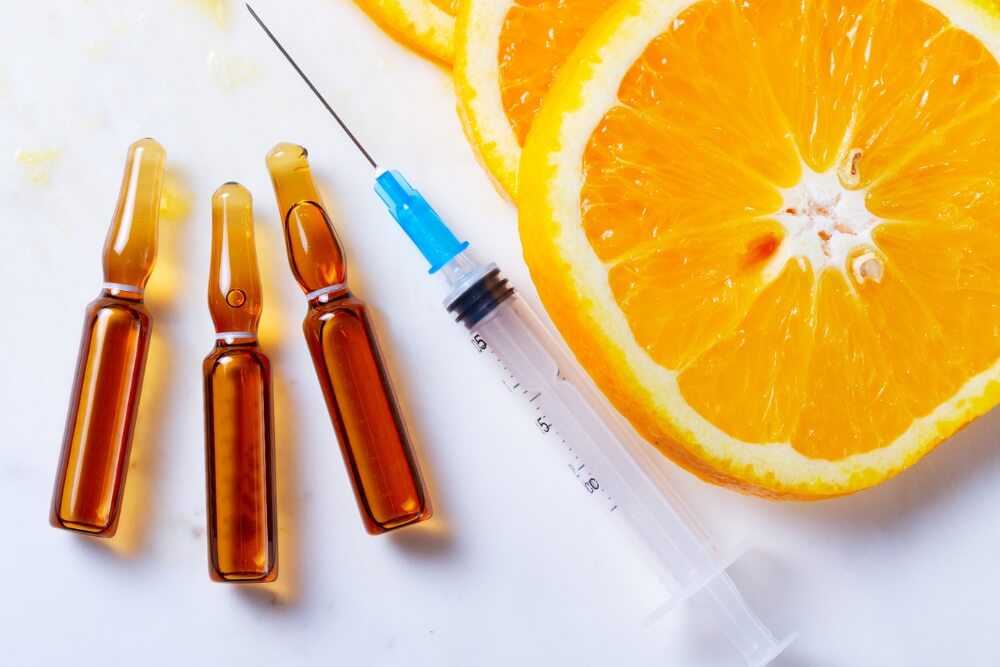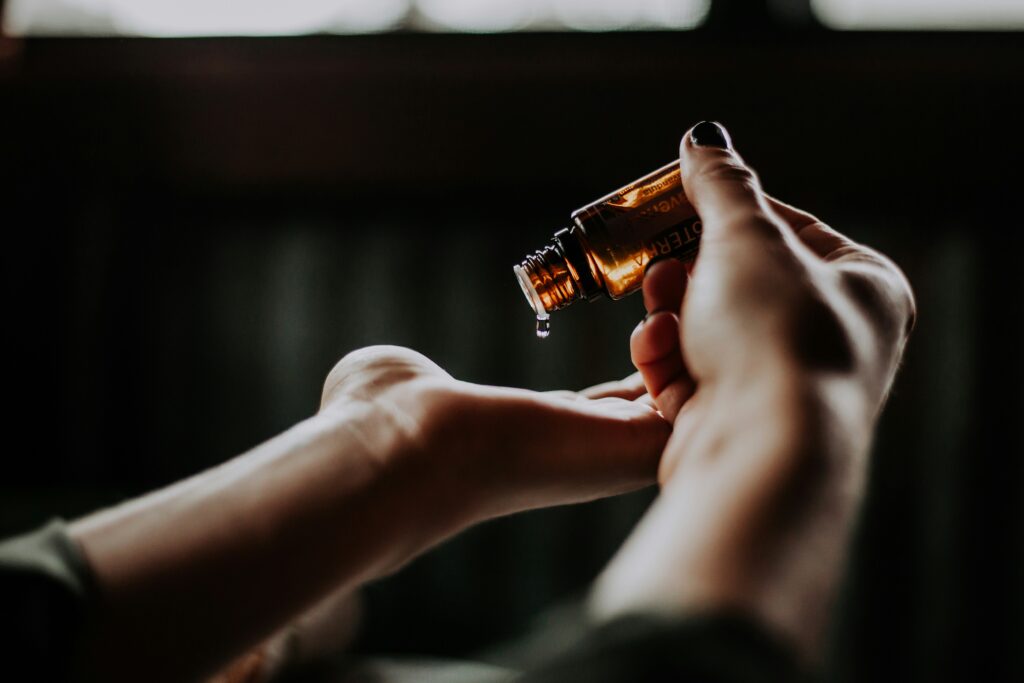In today’s wellness landscape, hydration is often reduced to one phrase: “Drink more water.” While water is critical, optimal hydration goes far beyond H2O. Electrolytes, sodium, potassium, and magnesium, are the unsung heroes of hydration, influencing everything from athletic performance to brain function. Yet, government dietary guidelines around sodium intake may be leading us in the wrong direction.
The Case for More Salt
For decades, the prevailing advice has been to limit sodium intake to less than 2.3 grams per day. However, mounting scientific evidence suggests this number may be too restrictive. A growing body of research reveals that optimal health outcomes occur at sodium levels two to three times greater than current recommendations, approximately 4 to 6 grams per day.
This graph, developed by LMNT, underscores this point:
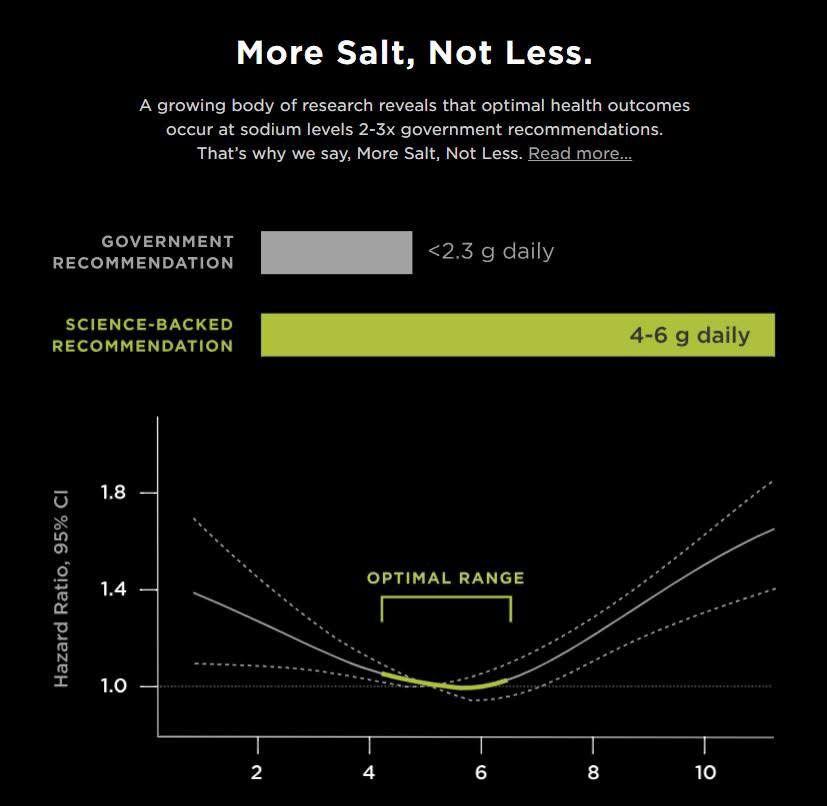
Notice how the lowest hazard ratio for health risks occurs not at the government’s recommended levels, but at the 4–6 gram range. Too little sodium can be just as harmful as too much, creating a U-shaped risk curve.
Why Sodium Matters
Sodium isn’t the villain it has been made out to be. It plays a fundamental role in:
- Fluid balance: Sodium helps regulate water retention and distribution within the body
- Nerve transmission: Essential for muscle contractions, reflexes, and even heartbeat regulation
- Performance and recovery: Athletes who fail to replace sodium lost through sweat risk muscle cramps, fatigue, and diminished performance
Athletes in warm climates can lose between 3.5 and 7 grams of sodium daily through sweat alone. For them, the government’s “low sodium” recommendation is not only impractical but potentially dangerous.
The Sports Drink Problem
Traditional sports drinks attempt to replace electrolytes, but often at the expense of health. Here’s why:
- A typical sports drink serving contains just 250 mg of sodium, far below what’s required for optimal hydration
- To reach effective sodium replacement levels, an athlete would need to consume 14 or more servings per day, translating to an astronomical 280–700 grams of added sugar
This sugar load sabotages metabolic health, increases inflammation, and undermines the very performance those drinks promise to enhance.

A Smarter Solution: LMNT Electrolytes
This is where LMNT comes in. Designed by health experts and athletes, LMNT packets deliver:
- 1,000 mg sodium
- 200 mg potassium
- 60 mg magnesium
And importantly, zero sugar.
This formulation allows athletes and everyday individuals alike to replace electrolytes effectively, without the harmful metabolic burden of sugar-heavy alternatives.
You can order LMNT directly on Amazon here: LMNT Electrolyte Packets
To dive deeper into the science of electrolytes and hydration, visit LMNT Science.
Beyond Sports: Everyday Benefits
Electrolyte optimization isn’t just for athletes. Everyday individuals benefit from balanced sodium intake as well. Consider the following:
- Mental focus and energy: Sodium supports nerve communication, reducing “brain fog”
- Stress resilience: Cortisol and adrenal function are closely tied to electrolyte balance
- Longevity and metabolic health: Maintaining electrolyte equilibrium may lower the risk of chronic diseases linked to dehydration and mineral imbalances
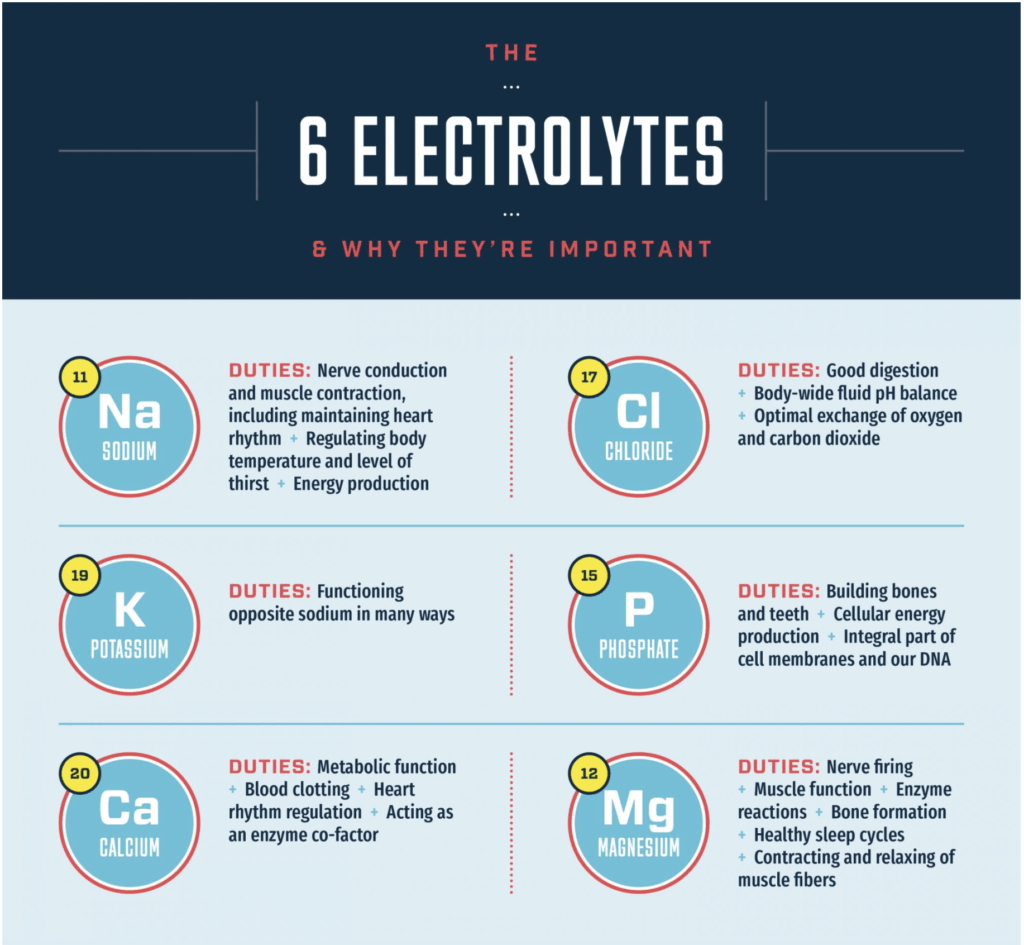
Practical Takeaways
- Don’t fear salt: Aim for 4–6 grams of sodium daily, unless you have a specific medical condition requiring restriction
- Hydrate intelligently: Pair water with electrolytes, not just sugar-laden beverages
- Optimize performance: If you’re an athlete, track your sweat and sodium losses, then replenish with the right balance of sodium, potassium, and magnesium
- Use smarter tools: Products like LMNT offer an effective, science-backed alternative to traditional hydration strategies
Final Thoughts
Hydration is more than just water, and salt is more than just a seasoning. By rethinking sodium intake and embracing science-backed hydration strategies, we can unlock better health, higher performance, and improved quality of life. So the next time you reach for a sports drink, consider whether it’s truly serving your body’s needs. More often than not, the answer will be: more salt, not less.
This article is part of our ongoing educational partnership with LMNT, ensuring our patients and readers have access to cutting-edge health strategies backed by science.
source https://evolvehealthcare.com/hydration-and-electrolytes-more-salt-not-less/





